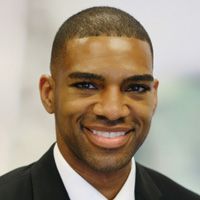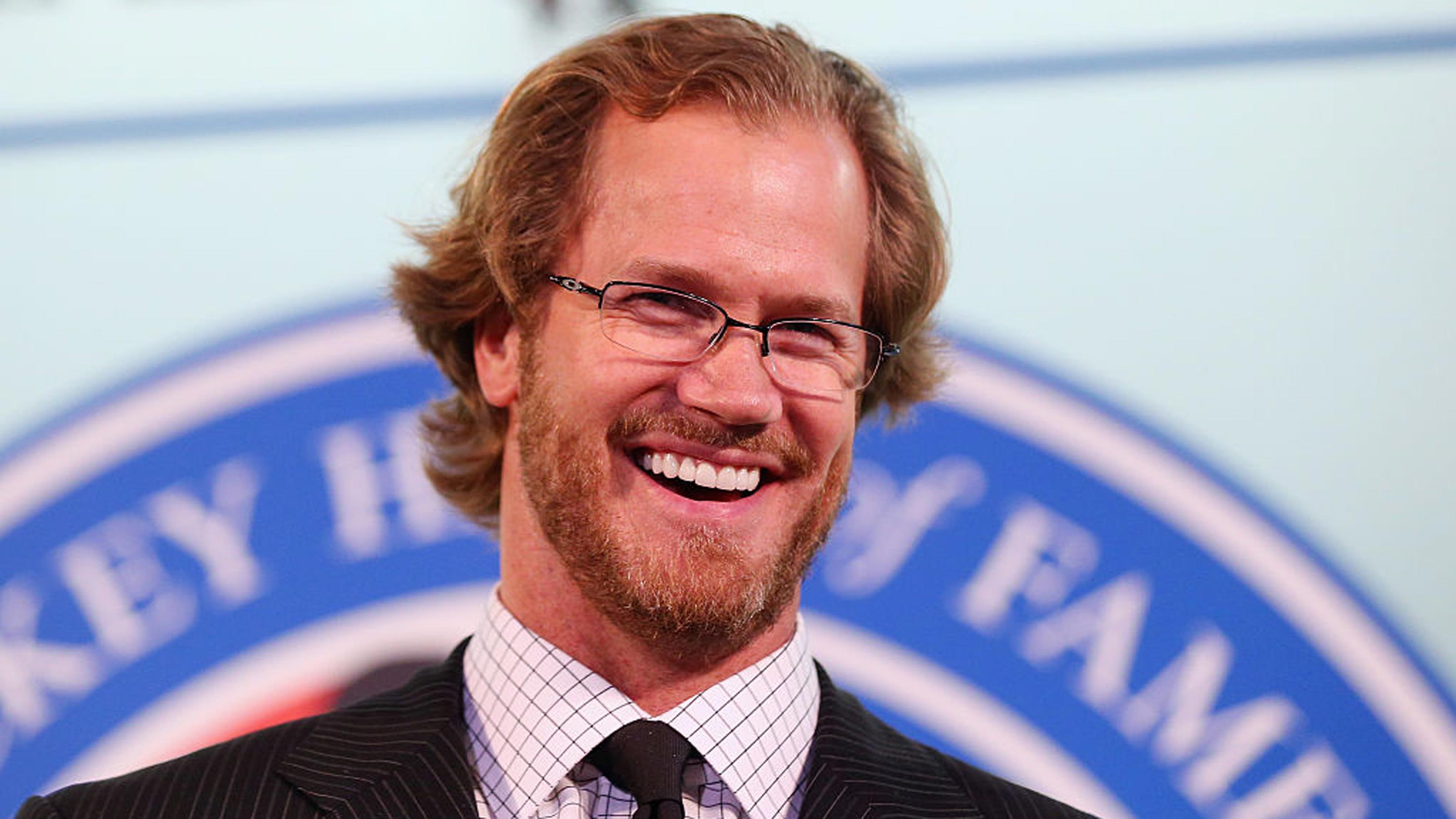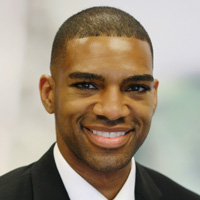Hockey Star’s Viral Twitter Rant Targets Wealth Management
NHL great Chris Pronger took to Twitter recently to critique athletes’ spending and investing, warn of predatory financial advisers and offer smart money advice we all can benefit from.


Profit and prosper with the best of Kiplinger's advice on investing, taxes, retirement, personal finance and much more. Delivered daily. Enter your email in the box and click Sign Me Up.
You are now subscribed
Your newsletter sign-up was successful
Want to add more newsletters?

Delivered daily
Kiplinger Today
Profit and prosper with the best of Kiplinger's advice on investing, taxes, retirement, personal finance and much more delivered daily. Smart money moves start here.

Sent five days a week
Kiplinger A Step Ahead
Get practical help to make better financial decisions in your everyday life, from spending to savings on top deals.

Delivered daily
Kiplinger Closing Bell
Get today's biggest financial and investing headlines delivered to your inbox every day the U.S. stock market is open.

Sent twice a week
Kiplinger Adviser Intel
Financial pros across the country share best practices and fresh tactics to preserve and grow your wealth.

Delivered weekly
Kiplinger Tax Tips
Trim your federal and state tax bills with practical tax-planning and tax-cutting strategies.

Sent twice a week
Kiplinger Retirement Tips
Your twice-a-week guide to planning and enjoying a financially secure and richly rewarding retirement

Sent bimonthly.
Kiplinger Adviser Angle
Insights for advisers, wealth managers and other financial professionals.

Sent twice a week
Kiplinger Investing Weekly
Your twice-a-week roundup of promising stocks, funds, companies and industries you should consider, ones you should avoid, and why.

Sent weekly for six weeks
Kiplinger Invest for Retirement
Your step-by-step six-part series on how to invest for retirement, from devising a successful strategy to exactly which investments to choose.
Chris Pronger spent 20 years in the NHL and became a measuring stick for other defensemen. He won the Hart Trophy as league MVP in 2000, the first defenseman to since Bobby Orr almost three decades earlier. He was big, skilled, and also not a pushover, collecting over 1,600 penalty minutes.
After some years in front office work, the Hall of Famer took to Twitter in April and decided to throw his weight around. However, this time he went after bad financial habits of athletes and those who prey on their newfound wealth and naiveté.
Pronger unloaded a lot of knowledge and advice in the 18-tweet thread. Here are some of key takeaways:
From just $107.88 $24.99 for Kiplinger Personal Finance
Become a smarter, better informed investor. Subscribe from just $107.88 $24.99, plus get up to 4 Special Issues

Sign up for Kiplinger’s Free Newsletters
Profit and prosper with the best of expert advice on investing, taxes, retirement, personal finance and more - straight to your e-mail.
Profit and prosper with the best of expert advice - straight to your e-mail.
‘The Income Doesn’t Last as Long as One Might Think’
Pronger was drafted second overall in the 1993 NHL Draft by the Hartford Whalers. In the thread, he mentioned his rookie deal was worth $300,000, with a $1 million signing bonus. For any 18-year-old, that’s a lot of money.
He mentioned the impulse to make life-changing purchases when that first contract gets signed. There’s the big house for the parents, tricked-out ride, maybe a fancy watch. While NBA players usually get more attention for these big buys – many of whom see this as a way out of poverty for their families – it can happen to athletes in all leagues from all wealth levels.
Pronger rattled off a list of expenses NHL players incur during the season, from housing to support staff. All that comes out after taxes, which can swallow over half the paycheck. Pronger played for five different franchises, so he knows playing in different cities means different tax bills.
He warned that the lifestyle of lavish spending isn’t sustainable. While he credits mentors and a good support system for a good start in financial health, he acknowledged not everyone has that. Most NHL players get drafted out of juniors, which means they’ve likely lived away from home for years in smaller towns, where opportunities to develop good spending habits or positive influences may not be readily available. Most players only stay in top leagues for a few years, so their earning capacity is a short window.
‘You’re a Mark’
While Pronger started with a stick tap to players to try to steer them from trouble, he later threw a two-handed cross-check across the chests of those looking to take advantage of players.
He accused financial advisers, attorneys and other professionals of having “two sets of documents” and said they often “charge us more than the average person.” He believes the youth and wealth of professional athletes make them targets of those looking to make extra off famous clients who must have some interest in investing their millions.
Pronger admitted to falling victim to those seeking a major investment for a deal supposedly only available for a few days. He acknowledged that this often means the proposing parties haven’t been able to secure funding from other investors who have more time and experience in scrutinizing these deals.
“After a few errors myself, my rule is: If someone needs an answer right now, the answer is always NO. They learn this lesson real fast.”
In the thread, Pronger brought up Aroldis Chapman, who lost millions after giving power of attorney to a financial adviser. He didn’t mention Jack Johnson, the NHL veteran who went through bankruptcy after his family lost millions of his money to bad investments.
Taking Care of Friends
Pronger concluded by warning about the emotional ties players have to friends or family who want a taste of the action. Unfortunately, not everyone is satisfied with free tickets to games.
Chris’ brother Sean also played in the NHL and didn’t build an entourage of his own. However, many pro athletes want to help their friends and repay the years of loyalty and support. That can mean investing in ventures, buying gifts and big nights out. Most big-name stars feel compelled to create a “circle of trust” to use as a barrier for those who are drawn to their fame and fortune.
Not everyone can afford to hire all the guys from their neighborhood or youth teams to work for them when they become big stars. Pronger does acknowledge “it can be hard for many to let go of friends from back home.”
While he built a career on the ice, Pronger’s guidance would be well-received from all athletes. Spring is draft season for all four major North American leagues. Collegiate athletes can also now earn fortunes through NIL deals. Might be worth saucing the old vet a follow on Twitter for some free advice.
Profit and prosper with the best of Kiplinger's advice on investing, taxes, retirement, personal finance and much more. Delivered daily. Enter your email in the box and click Sign Me Up.

Ron L. Brown, CFP, is the co-founder of Athlete Essentials and president of R.L. Brown Wealth Management. He is an expert in wealth management, retirement planning, tax and estate planning, and business management. Ron takes pride in his work to support clients in reaching their individual financial goals. He graduated from Asbury University in 2003 and earned his CFP, Certified Financial Planner, credential in 2017. Learn more at athessentials.com and rlbrownwealth.com.
-
 Stocks Sink With Alphabet, Bitcoin: Stock Market Today
Stocks Sink With Alphabet, Bitcoin: Stock Market TodayA dismal round of jobs data did little to lift sentiment on Thursday.
-
 Betting on Super Bowl 2026? New IRS Tax Changes Could Cost You
Betting on Super Bowl 2026? New IRS Tax Changes Could Cost YouTaxable Income When Super Bowl LX hype fades, some fans may be surprised to learn that sports betting tax rules have shifted.
-
 How Much It Costs to Host a Super Bowl Party in 2026
How Much It Costs to Host a Super Bowl Party in 2026Hosting a Super Bowl party in 2026 could cost you. Here's a breakdown of food, drink and entertainment costs — plus ways to save.
-
 The 4 Estate Planning Documents Every High-Net-Worth Family Needs (Not Just a Will)
The 4 Estate Planning Documents Every High-Net-Worth Family Needs (Not Just a Will)The key to successful estate planning for HNW families isn't just drafting these four documents, but ensuring they're current and immediately accessible.
-
 Love and Legacy: What Couples Rarely Talk About (But Should)
Love and Legacy: What Couples Rarely Talk About (But Should)Couples who talk openly about finances, including estate planning, are more likely to head into retirement joyfully. How can you get the conversation going?
-
 How to Get the Fair Value for Your Shares When You Are in the Minority Vote on a Sale of Substantially All Corporate Assets
How to Get the Fair Value for Your Shares When You Are in the Minority Vote on a Sale of Substantially All Corporate AssetsWhen a sale of substantially all corporate assets is approved by majority vote, shareholders on the losing side of the vote should understand their rights.
-
 How to Add a Pet Trust to Your Estate Plan: Don't Leave Your Best Friend to Chance
How to Add a Pet Trust to Your Estate Plan: Don't Leave Your Best Friend to ChanceAdding a pet trust to your estate plan can ensure your pets are properly looked after when you're no longer able to care for them. This is how to go about it.
-
 Want to Avoid Leaving Chaos in Your Wake? Don't Leave Behind an Outdated Estate Plan
Want to Avoid Leaving Chaos in Your Wake? Don't Leave Behind an Outdated Estate PlanAn outdated or incomplete estate plan could cause confusion for those handling your affairs at a difficult time. This guide highlights what to update and when.
-
 I'm a Financial Adviser: This Is Why I Became an Advocate for Fee-Only Financial Advice
I'm a Financial Adviser: This Is Why I Became an Advocate for Fee-Only Financial AdviceCan financial advisers who earn commissions on product sales give clients the best advice? For one professional, changing track was the clear choice.
-
 I Met With 100-Plus Advisers to Develop This Road Map for Adopting AI
I Met With 100-Plus Advisers to Develop This Road Map for Adopting AIFor financial advisers eager to embrace AI but unsure where to start, this road map will help you integrate the right tools and safeguards into your work.
-
 The Referral Revolution: How to Grow Your Business With Trust
The Referral Revolution: How to Grow Your Business With TrustYou can attract ideal clients by focusing on value and leveraging your current relationships to create a referral-based practice.